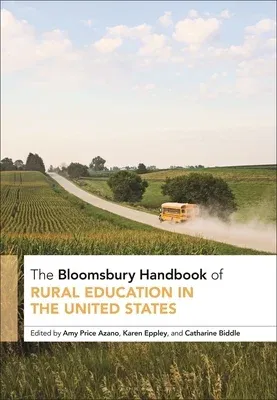The Bloomsbury Handbook of Rural Education in the United StatesPaperback, 20 April 2023

Qty
1
Turbo
Ships in 2 - 3 days
In Stock
Free Delivery
Cash on Delivery
15 Days
Free Returns
Secure Checkout

Part of Series
Bloomsbury Handbooks
Print Length
416 pages
Language
English
Publisher
Bloomsbury Publishing PLC
Date Published
20 Apr 2023
ISBN-10
1350244295
ISBN-13
9781350244290
Description
Product Details
Book Format:
Paperback
Country of Origin:
US
Date Published:
20 April 2023
Dimensions:
25.4 x
17.78 x
2.16 cm
Genre:
Rural
ISBN-10:
1350244295
ISBN-13:
9781350244290
Language:
English
Location:
New York
Pages:
416
Publisher:
Series:
Weight:
712.14 gm